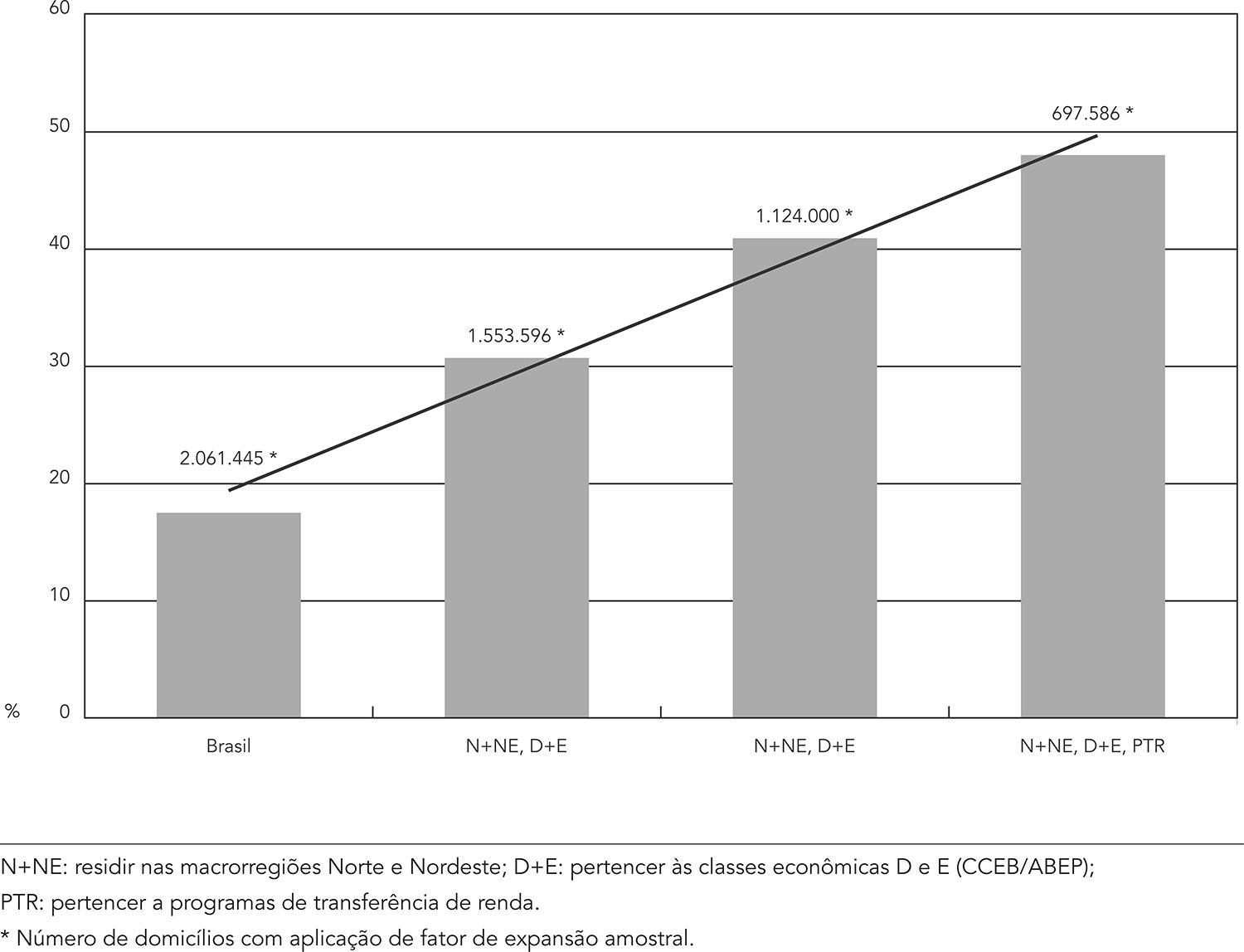Este artigo se propõe a estudar o processo de insegurança alimentar e fome em domicílios brasileiros com crianças menores de cinco anos. É um estudo transversal com representatividade nacional executado com dados da Pesquisa Nacional de Demografia e Saúde da Criança e da Mulher (PNDS-2006) tendo como variável dependente a insegurança alimentar moderada e grave (IAM+G), medida através da Escala Brasileira de Insegurança Alimentar (EBIA). Foram geradas estimativas de prevalência e razão de prevalência com intervalos de 95% de confiança. Os resultados apontam para alta prevalência de IAM+G concentrada nas regiões Norte e Nordeste (30,7%), nas classes econômicas D e E (34%) e em beneficiários de Programas de Transferência de Renda (PTR; 36,5%). O modelo de análise multivariada constatou que os riscos sociais (beneficiário de PTR), regionais (Norte e Nordeste) e econômicos (classes D e E) eram de 1,8, 2,0 e 2,4, respectivamente. Agregando-se os três riscos observou-se que 48% dos domicílios encontravam-se em IAM+G, ou seja, crianças e adultos passaram fome nos três meses anteriores ao inquérito.
Segurança Alimentar e Nutricional; Iniquidade Social; Vulnerabilidade Social; Inquéritos Epidemiológicos; Fome

